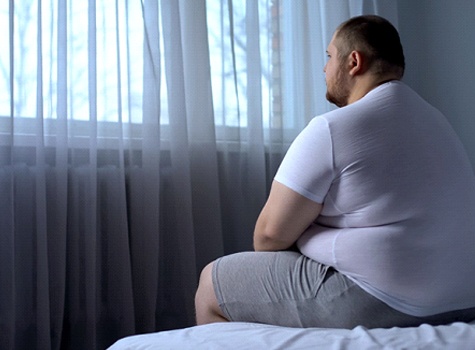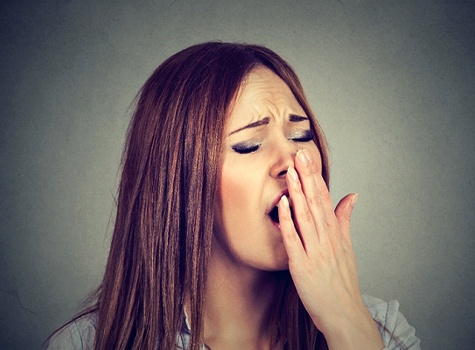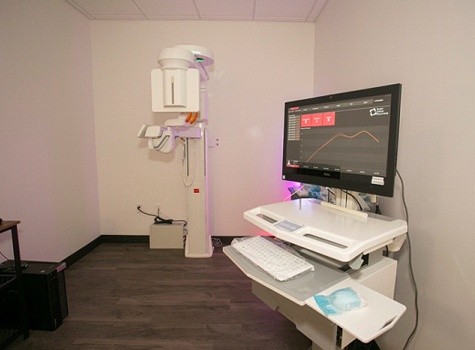What is Sleep Apnea? – Dallas, TX
When Breathing & Sleeping Become a Problem
If you are waking once or even hundreds of times each night because you cannot breathe properly, there’s a good chance you may be living with sleep apnea. At Star Sleep & Wellness, Dr. Kent Smith and our team of professionals understand the challenges and exhaustion this type of condition can cause, often manifesting itself through extreme fatigue, high blood pressure, and other serious health problems. This is why it’s essential that if you notice you are unable to get the rest you need, you should call our office to schedule an appointment. Our team will work with you to achieve a formal diagnosis as well as develop a treatment plan that is right for you.
Sleep Apnea Basics

Sleep apnea is a common sleep-related breathing disorder that affects millions of people throughout the United States. Because many of its symptoms are similar to those of other conditions, it is often misdiagnosed. However, apnea patients may snore and/or cease breathing for more than 10 seconds at a time while sleeping. This type of abnormal breathing can lead to serious health problems that affect the heart, brain, and other vital organs. Without proper treatment, sleep apnea can be fatal.
What Causes Sleep Apnea?

Although many people believe sleep apnea is only a problem that forms in adults, children, too, can experience difficulty breathing while sleeping. Some of the most common causes of sleep apnea are:
- Being overweight or obese
- Having enlarged adenoids or tonsils
- Excessive fat accumulations around the neck
- Having a narrow airway
- Smoking
- Family history of sleep apnea
- Frequent alcohol consumption
Sleep Apnea Symptoms

The symptoms associated with sleep apnea are not always obvious, especially if you live alone. However, there are ways to tell that you might be suffering from this common condition, especially if you notice any of the following:
- Chronic snoring
- Excessive daytime fatigue
- Inability to concentrate/focus
- Ceased breathing while sleeping, causing you to wake to gasp for air
- Irritability, moodiness
- Depression
- Dry mouth or sore throat in the morning
- Frequent urination throughout the night
- Morning headaches
- Loss of libido
Types of Sleep Apnea

There are three types of sleep apnea: obstructive sleep apnea (OSA), central sleep apnea (CSA), and complex sleep apnea. OSA is the most common form of sleep apnea and occurs when soft oral tissues toward the back of the throat become relaxed and collapse onto the airway, preventing adequate airflow. CSA refers to a form of sleep apnea that occurs when a person’s brain does not trigger the body to breathe during sleep, resulting in ceased breathing throughout the night. Complex sleep apnea is a combination of both OSA and CSA.
How is Sleep Apnea Diagnosed?

To find out if what you are experiencing is sleep apnea, you will first need to undergo a sleep test. This can occur in a local sleep laboratory where you will be monitored throughout the night by technicians using various pieces of equipment. It is also possible to receive an at-home sleep test that allows you to wear a specialized device at night. While sleeping, it monitors your heart rate, breathing patterns, and any interruptions that may occur. Once the test is complete, a medical professional will analyze the data to determine if you should be formally diagnosed with sleep apnea.
Is Sleep Apnea Therapy Covered by Insurance?

Most medical insurance companies will agree to cover oral appliance therapy because it is a medical necessity. However, it is essential that team members obtain a pre-authorization to ensure acceptance of coverage and determine how much coverage is available. If any out-of-pocket expenses are required, that information will be made known before undergoing treatment. If you have Medicare with an additional supplemental policy, it is unlikely that you will pay anything for sleep apnea treatment.
